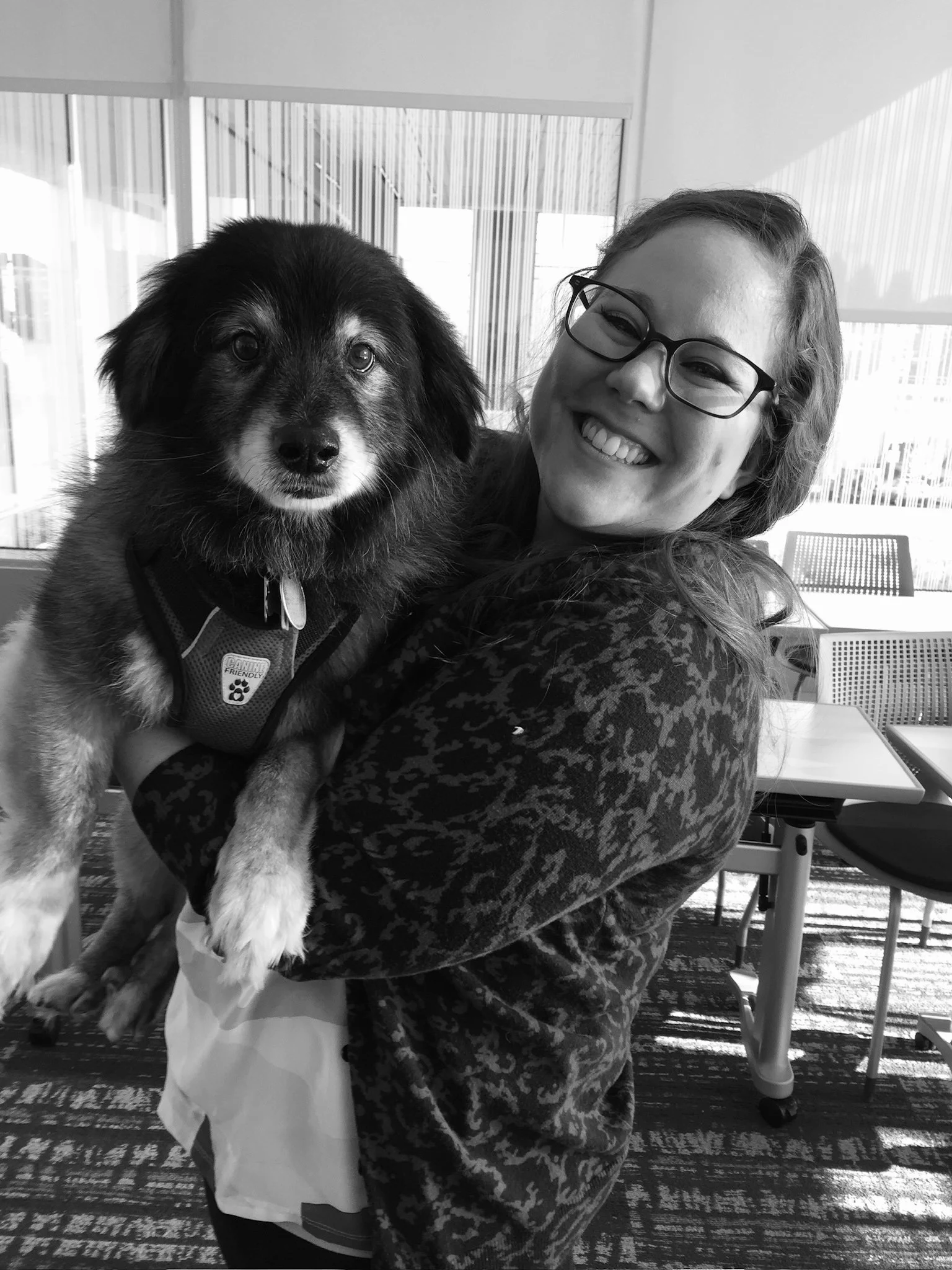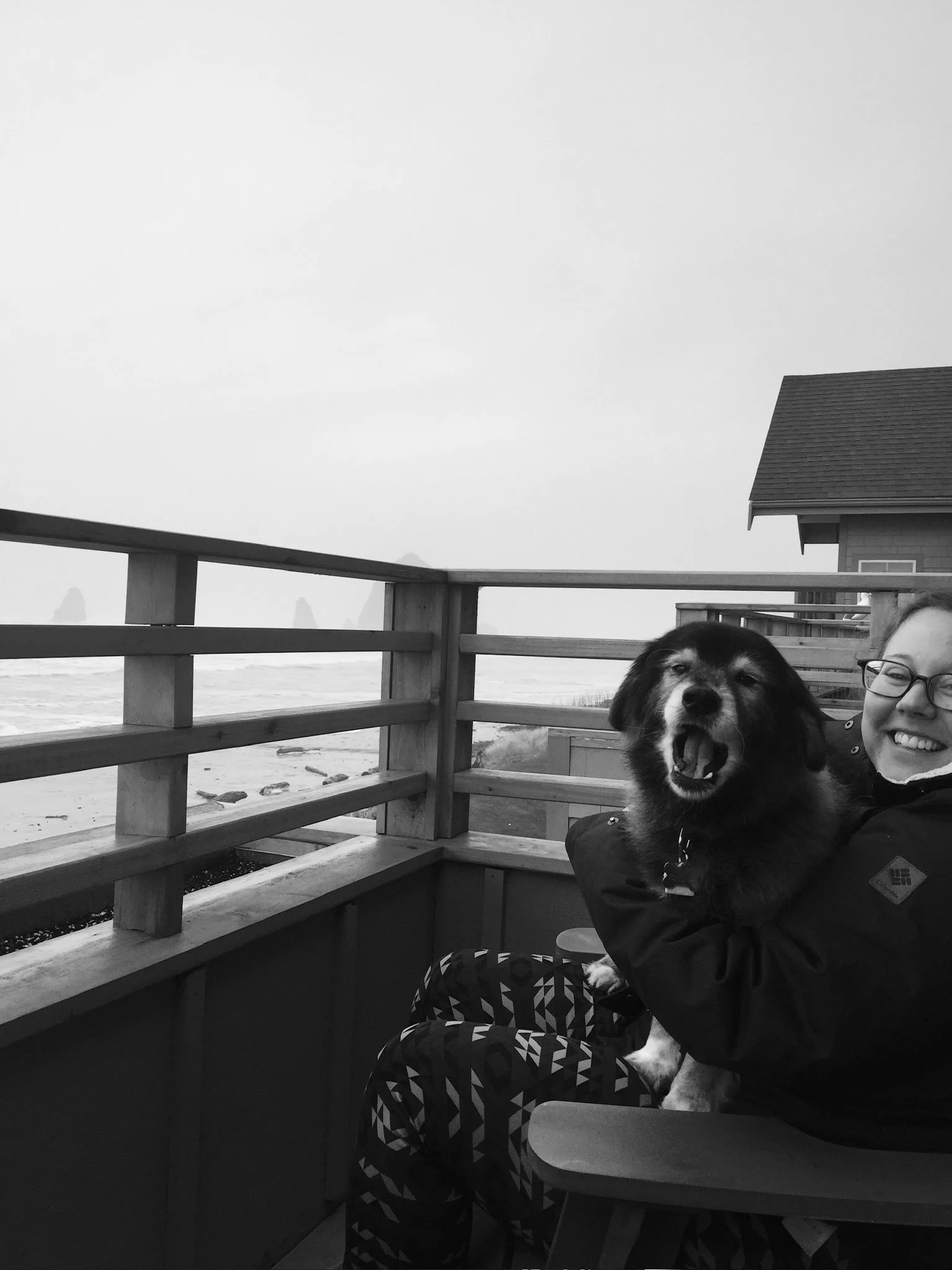Pet Grief & Loss
Your grief is completely valid, and it’s important to not go through this alone.
For so many people, experiencing the death of a pet feels like losing a part of you, a child, a family member, a best friend, and more. That one creature who gives unconditional love is no longer physically with you and it can feel ridiculously heavy and daunting to get through. The human-animal bond is incredibly powerful and leaves a lasting impact on our hearts and bodies.
When you’re in the process of losing your pet or have experienced the loss of your pet, the experience can feel traumatic and impactful. Sometimes, we’re so used to co-regulating our emotions with our animal family members (because it has been shown that animals can be most helpful for our own emotional regulation), that not only do we feel the loss of our pet, but also a loss of a support, and leave us unsure of how to regulate our nervous system now.
Grief is not a linear process for most, it’s not getting past bench markers or stages— it’s more like a pinball machine, or a tangled ball of yarn. There is no right way to grieve, this is not a race to a finish line, and no one can make the grief go away. Grief is more like a journey— some days will be positive, some will be negative, some will be both or neither, it will ebb & flow, it could take weeks, months, or years. Even then, some folks have reminders that come up, such as anniversaries, social media photo memories, and vet or pet medication email reminders.
For those who are childfree without human kids, experiencing the death of fur babies & pets may feel like losing a child. This feeling of grief is oftentimes disenfranchised by society; when you say you feel like you lost your baby or your child, many may not validate that. I’m here to tell you that it’s completely true and valid. Disenfranchised grief is absolutely grief.
If you’ve had to make the difficult decision to euthanize your pet, you may feel profound guilt, and this is a very normal feeling as well, and also something to process through.
Coming in for sessions means that we’ll process feelings, openly talk about your pet, and discuss strategies to better cope & manage life in order to move forward. We’ll also discuss what supports you can utilize. Our work together will be founded in safety, and will work toward grief acceptance and how to celebrate your pet in your own way.
For me, when I experienced the death of my long-time rescue dog Guinness, it was utterly unbearable. I didn’t work for a couple of weeks, I only spoke to a few people that I knew would understand my pain, and took many long walks outside in order to move my body through the grief. It’s been a couple of years now, and it still hurts at times, but I remind myself that grief doesn’t ever disappear, it just becomes more manageable. Additionally, he was also a therapy office dog, so not only did I experience this loss, my clients, students, colleagues, and neighbors also felt this loss. With the extra layer of having to tell clients and students, that grief felt both heavier and more valid to share with community.
Resources
This is one of my favorite Ted Talks from Dr. Sarah Hoggan, an emergency veterinarian, on the impact of pet loss. Activation warning on pet death: https://www.youtube.com/watch?v=TkJGhQANjZo
Resource: Dove Lewis: https://www.dovelewis.org/pet-owners/pet-loss-support
Resource List: https://nwneighborhoodvet.com/pet-loss/grief-support/


